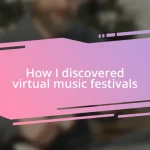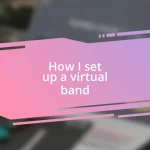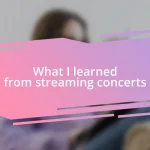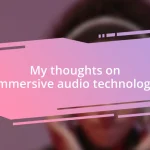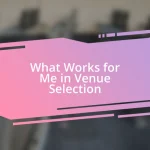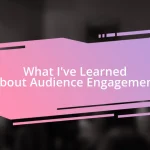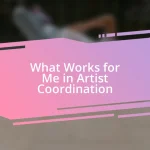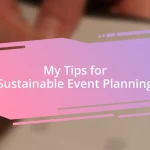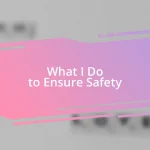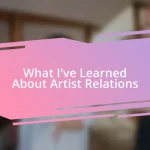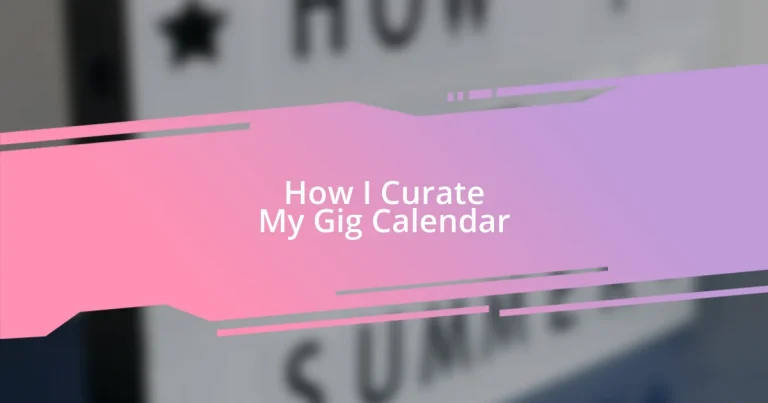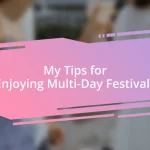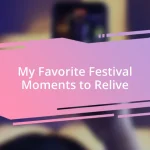Key takeaways:
- A gig calendar not only organizes events but also reflects personal passions and fosters community connections, enhancing the enjoyment of live music.
- Setting clear goals for gig scheduling—such as focusing on local artists and balancing experiences—can lead to more rewarding musical engagements.
- Utilizing tech tools and actively participating in music communities broadens exposure and opportunities, enriching the overall concert-going experience.
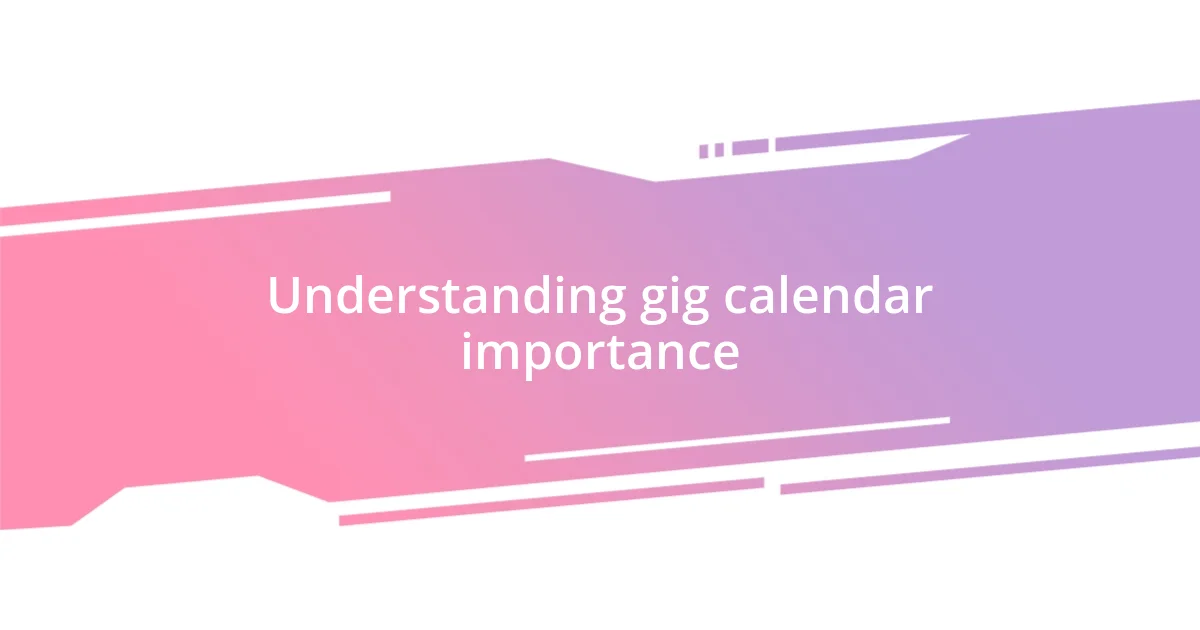
Understanding gig calendar importance
A gig calendar is more than just a list of events; it’s a reflection of my passions and commitments. I remember the thrill of stumbling upon a last-minute show by one of my favorite bands because it popped up on my calendar. That spontaneity is such a reminder of how vital it is to stay organized—I felt that rush, and I want to experience it again.
Understanding the importance of a gig calendar goes beyond mere scheduling. It allows me to connect deeply with my community and plan my social life. Have you ever missed an event you were excited about simply because you forgot? That feeling of disappointment is something I strive to avoid, so I prioritize my calendar as a key tool in my enjoyment of live music.
In my experience, a well-curated gig calendar not only helps me manage time but also serves as a source of inspiration. Every time I look at it, I’m reminded of the incredible artists I want to support and the memories waiting to be made. Isn’t it fulfilling to know you have epic nights ahead, just from a glance?
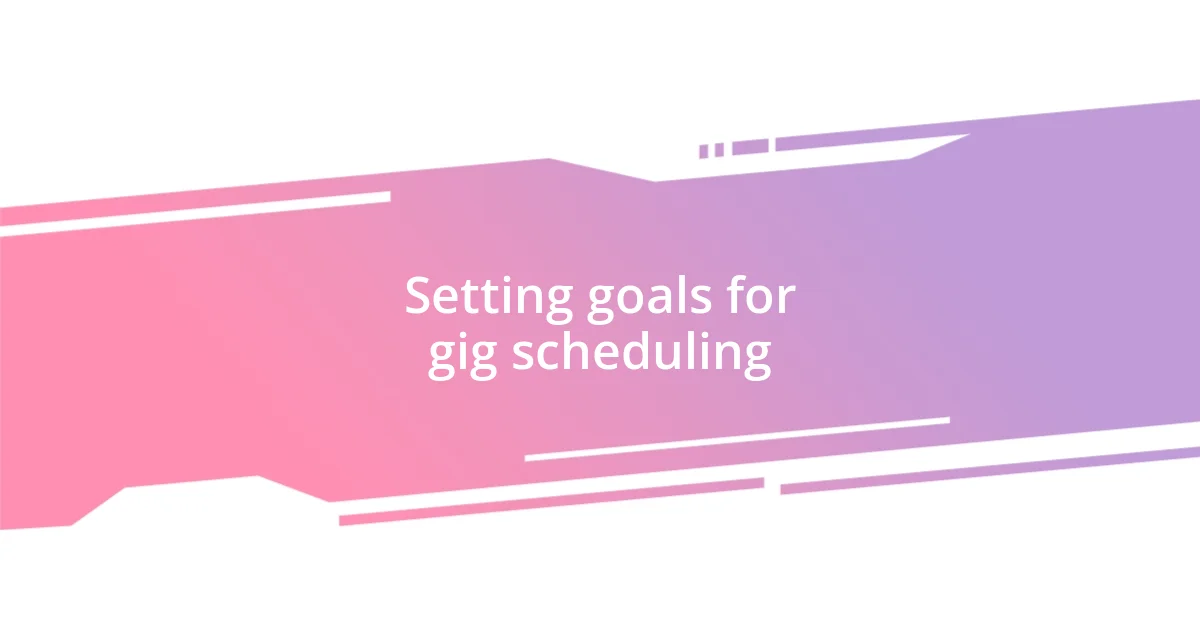
Setting goals for gig scheduling
Setting clear goals for gig scheduling is essential for maximizing my experience. I often find myself choosing between multiple events on a single weekend, so I set objectives based on my musical interests, budget, and social commitments. For instance, I might decide to prioritize local artists this month, as I believe supporting the homegrown talent is crucial for the music scene.
As I plan my gigs, I also consider my personal growth and well-being. If I’ve had a stressful week, I might schedule a soothing acoustic set instead of a high-energy show. Reflecting on how attending different types of performances affects my mood has been enlightening; it allows me to curate a calendar that not only entertains me but nurtures my soul.
I’ve also learned to balance quantity with quality. While it’s tempting to attend every show, I focus on experiences that will truly resonate with me. For example, skipping a concert just because the band is popular can lead to missing that hidden gem that changes my perspective on music altogether. This approach has made my gig experiences far more rewarding.
| Goal Type | Description |
|---|---|
| Musical Exploration | Prioritize discovering local artists and genres. |
| Mood Management | Align gigs with my emotional needs and stress levels. |
| Quality over Quantity | Focus on meaningful experiences rather than just popular events. |
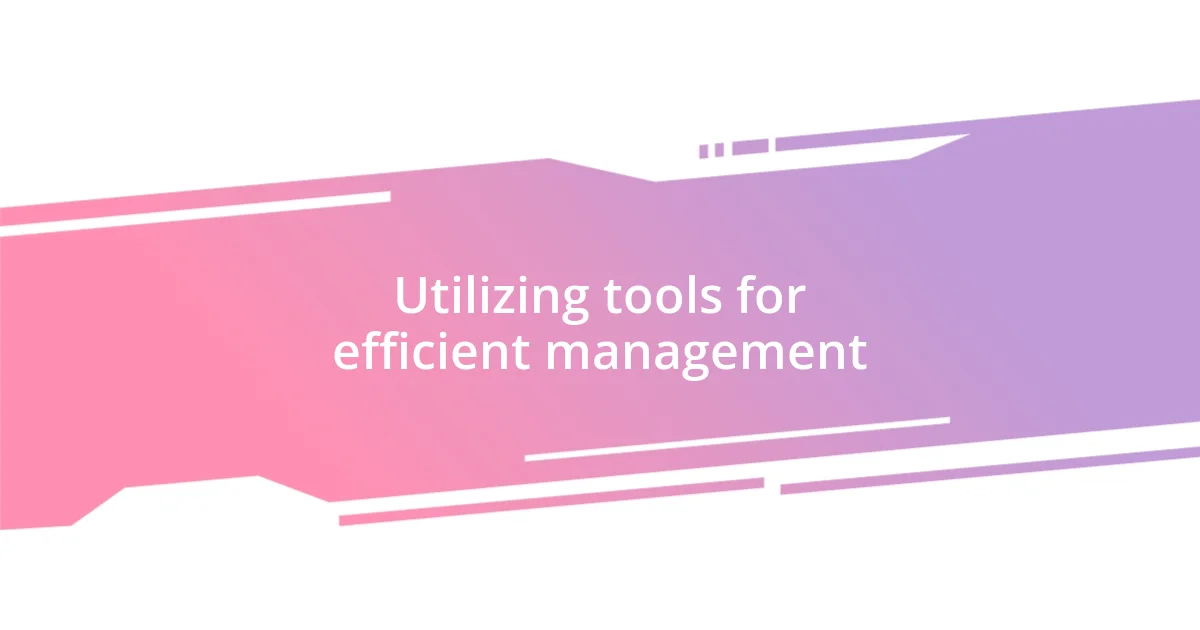
Utilizing tools for efficient management
Utilizing tech tools to manage my gig calendar has been a game changer. I can’t remember how chaotic scheduling used to be without the right apps. Nowadays, I rely on digital calendars not only for planning but also for receiving reminders. For instance, when I set an alert for a show, it brings back fond memories of when I attended my first festival. The thrill of knowing I won’t miss another event gives me peace of mind and makes the excitement build as the date approaches.
Here are some tools I find invaluable for efficient gig management:
- Digital Calendars (e.g., Google Calendar): Allow for color-coded events, reminders, and easy syncing with devices.
- Event Discovery Apps (e.g., Songkick, Bandsintown): Help me stay updated with my favorite artists and local shows.
- Social Media Platforms (e.g., Facebook Events): Enable me to see which friends are attending, adding a social aspect to my planning.
- Music Streaming Services (e.g., Spotify): Offer concert notifications based on my listening habits, keeping my gigs aligned with my musical tastes.
In the end, these tools not only streamline my scheduling but enrich my overall concert-going experience.
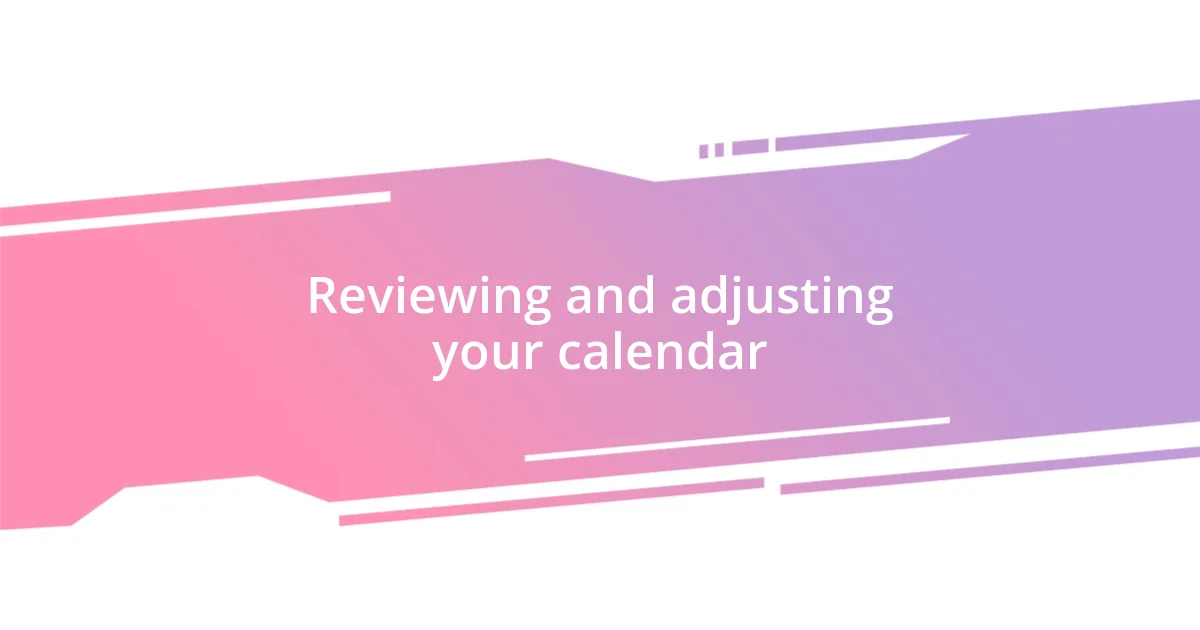
Reviewing and adjusting your calendar
Reviewing my gig calendar isn’t just a routine task; it’s a moment of reflection. I often sit down with a cup of coffee, looking over my upcoming events. As I scan through, I ask myself: which shows might be less fulfilling now that I’ve discovered newer artists? This practice helps me decide if I need to let go of an event and make space for something unexpected and exciting.
Adjustments can be quite revealing, too. I remember one time, I had tickets to a big-name concert, but after revisiting my schedule, I realized I hadn’t seen an intimate local jazz band in ages. The decision to skip the larger venue for that cozy, small setting was so rewarding. I found myself immersed in a unique musical experience that was much needed, showing me that it’s essential to prioritize what feeds my artistic soul over just attendance.
Sometimes, I also make it a point to assess the mood of my calendar as a whole. Are there too many late-night shows that could leave me drained? Or perhaps a couple of high-energy gigs in a row? Listening to myself and adjusting accordingly turns my calendar into a well-thought-out playlist of experiences rather than just a list of events. After all, isn’t the goal to feel inspired and uplifted after attending a show?
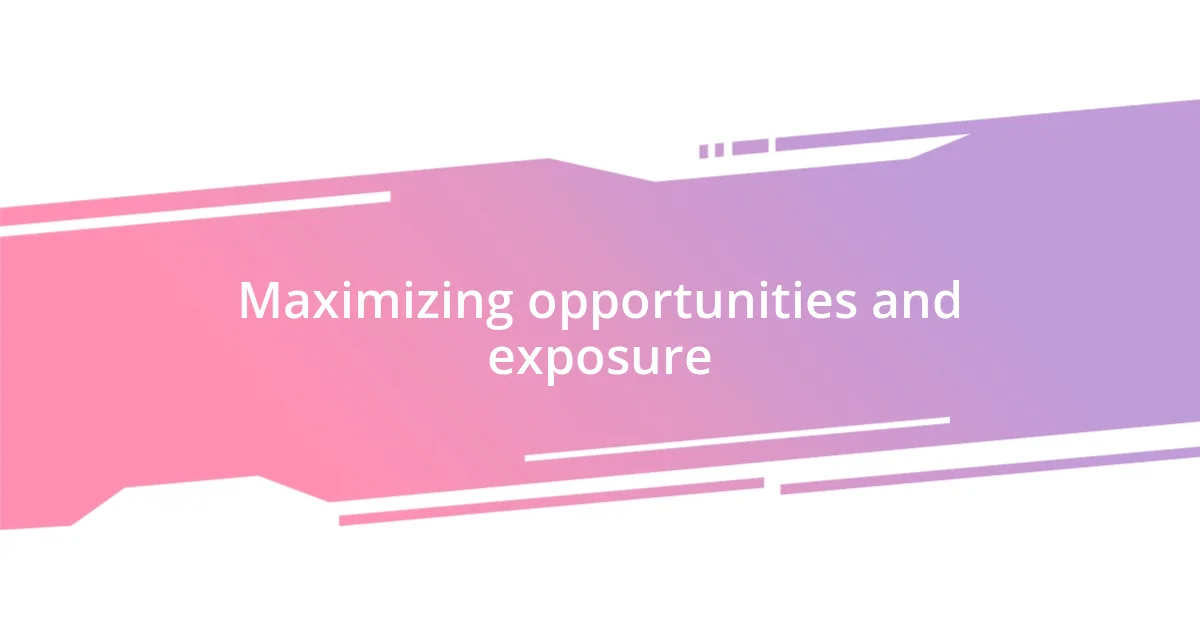
Maximizing opportunities and exposure
Maximizing opportunities and exposure is essential in the fast-paced world of live music. I’ve noticed that varied experiences can elevate my engagement with the music scene. For example, attending local open mic nights is a fantastic way to discover fresh talent and build connections with artists and fellow fans. Sometimes, those intimate settings lead to some of the best musical moments that larger venues can’t replicate. Have you ever stumbled upon an artist that just blew you away in a small space?
Getting involved in community events is another avenue I’ve explored. Volunteering at a festival not only gives me free access but also exposes me to networking opportunities that I might not have encountered otherwise. I recall a time when I helped out at a local music festival, and I ended up chatting with musicians. Those conversations opened doors to exclusive gigs and side projects, enriching my calendar beyond what I initially anticipated. It’s about creating a ripple effect of connections that can lead to unexpected opportunities.
Finally, keeping my social media presence active plays a significant role in maximizing exposure. I’ve learned that sharing my concert experiences—whether it’s a quick story on Instagram or a review on my blog—creates a dialogue with fellow music lovers. This not only helps me stay top-of-mind with my friends and followers but also inspires others to join me at upcoming shows. Have you ever thought about how your engagement online can broaden your music experiences? I find that sharing and interacting often leads to exciting invites and recommendations that I might have otherwise missed.
